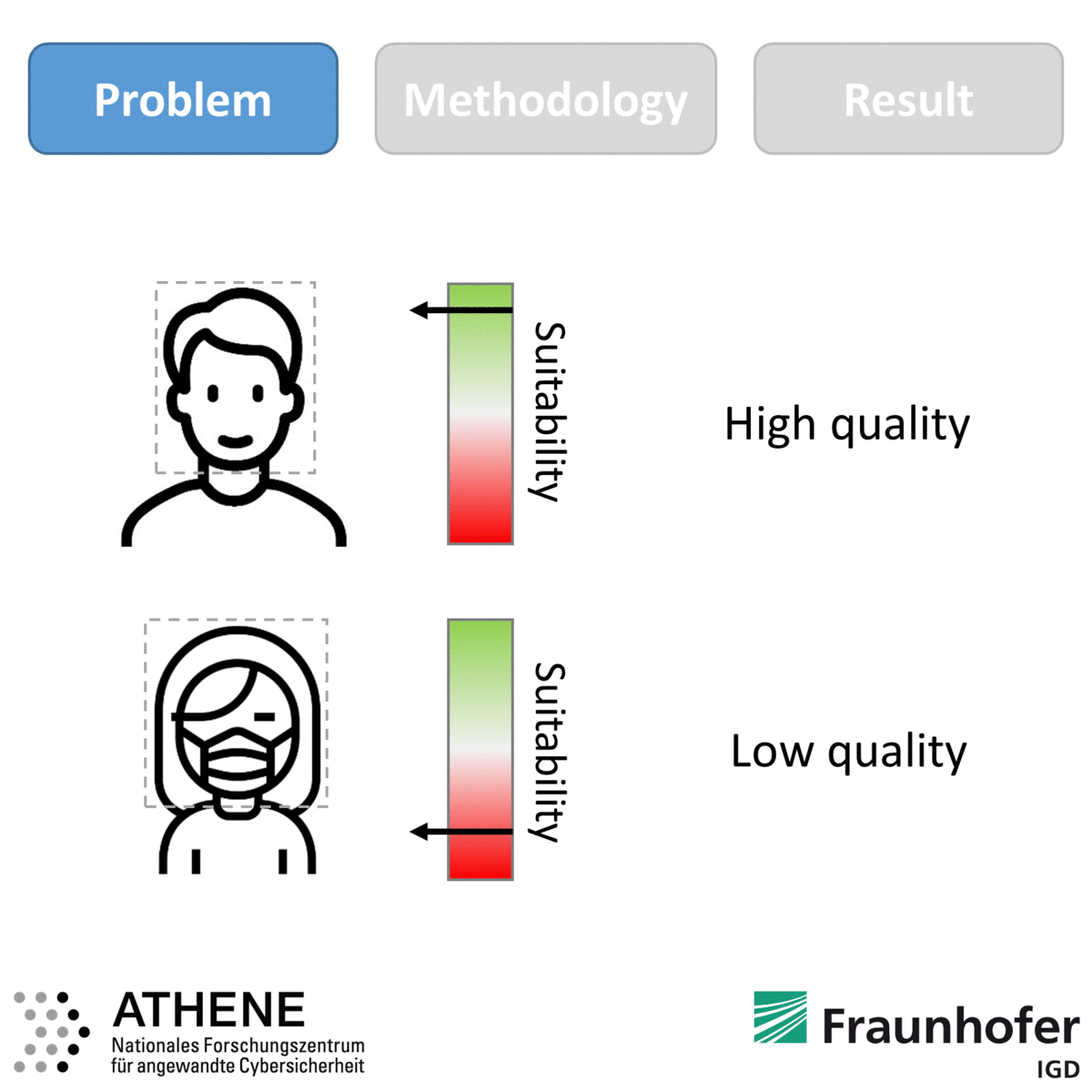Face Quality Estimation and Its Correlation to Demographic and Non-Demographic Bias in Face Recognition
Face quality assessment aims at estimating the utility of a face image for the purpose of recognition. It is a key factor to achieve high face recognition performances. Currently, the high performance of these face recognition systems come with the cost of a strong bias against demographic and non-demographic sub-groups. Recent work has shown that face quality assessment algorithms should adapt to the deployed face recognition system, in order to achieve highly accurate and robust quality estimations. However, this could lead to a bias transfer towards the face quality assessment leading to discriminatory effects e.g. during enrolment. In this work, we present an in-depth analysis of the correlation between bias in face recognition and face quality assessment. Experiments were conducted on two publicly available datasets captured under controlled and uncontrolled circumstances with two popular face embeddings. We evaluated four state-of-the-art solutions for face quality assessment towards biases to pose, ethnicity, and age. The experiments showed that the face quality assessment solutions assign significantly lower quality values towards subgroups affected by the recognition bias demonstrating that these approaches are biased as well. This raises ethical questions towards fairness and discrimination which future works have to address.
PDF Abstract



 VGGFace2
VGGFace2
 MORPH
MORPH
 Adience
Adience
 Color FERET
Color FERET